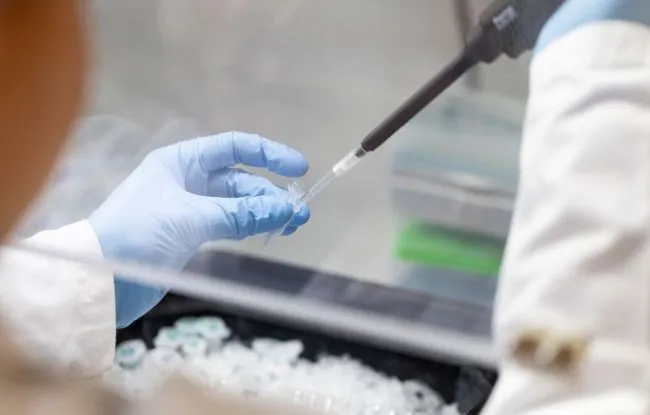- Home >
- Institut Curie News >
- Artificial intelligence for better diagnosis and thus better treatment for some types of breast cancers
Homologous recombination deficiencies (HRD) are genetic anomalies that result in cells’ loss of the ability to repair their DNA when it becomes damaged. These deficiencies are often the result of mutations of the BRCA1 or BRCA2 genes. Furthermore, these deficiencies are factors in the development of cancer, but they have the advantage of making cancerous cells sensitive to certain targeted treatments, namely PARP inhibitors and platinum salts. Identifying HRD is therefore of great importance in order to offer affected patients the best possible treatment. But identifying those luminal cancers - the most common breast cancer sub-type - that are associated with a homologous recombination deficiency is a real challenge given how many there are, and it requires the use of costly molecular sequencing analyses, which are still too infrequently used, for many patients who have no mutation.
The Deep Learning technology that Prof. Thomas Walter and his Statistical Machine Learning and Modelling of Biological Systems team (Inserm U900/Mines Paris-PSL) at Institut Curie’s Research Center have just developed may change the landscape.
We have trained a network of neurons to predict these deficiencies by simply “looking” at easily available information, such as tumors samples, taken during a surgical procedure, and prepared for examination by pathologists under a microscope
He explains.
Deep Learning has revolutionized the analysis of biomedical images, particularly through digital pathology
Declares Prof. Anne Vincent-Salomon, pathologist and specialist in female cancers, manager of the Diagnostic and Theranostic Medicine Division at Institut Curie’s Hospital Group, and professor at PSL University.
This new program will further enhance and extend our ability to offer the best treatments to as many patients as possible, both in France and in countries without the necessary resources for large numbers of molecular diagnoses.
For more information:
Tristan Lazard, Guillaume Bataillon, Peter Naylor, Tatiana Popova, François-Clément Bidard, Dominique Stoppa-Lyonnet, Marc-Henri Stern, Etienne Decencière, Thomas Walter, Anne Vincent-Salomon



